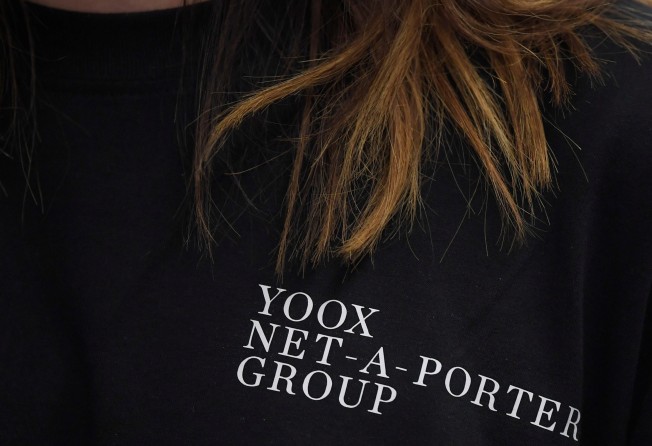Alibaba denies links to luxury e-tailer Yoox Net-A-Porter
Report on Chinese fashion website Ladymax.cn suggests Alibaba had contacted Yoox Net-a-Porter over possible capital cooperation or even a takeover

Shares in Italian online fashion retailer Yoox Net-A-Porter (YNAP) have surged in recent days as traders cited reported interest from Chinese e-commerce giant, Alibaba Group.
A report on Chinese fashion website Ladymax.cn said the Chinese conglomerate, led by founder and chairman Jack Ma, had contacted Yoox Net-a-Porter over possible capital cooperation or even a takeover, adding it had not ruled out buying shares.
But a source at the company, who did not want to be named, has now told South China Morning Post the report “is not true”adding they had no knowledge of who sparked the rumour.
The suggested tie-up between Alibaba and YNAP comes just days after a mega deal that saw JD.com spend a whopping US$397 million on luxury fashion e-commerce site Farfetch.
Dubbed by some the Amazon of fashion, YNAP saw its shares jumped 9.24 per cent on Monday and Tuesday on the back of the Alibaba rumour – its biggest two-day rise since last September.
The rally was just in time to mitigate investor concerns over mounting short interest in the stock, as the luxury e-commerce market became increasingly crowded.
“Alibaba should still be looking into cultivating its luxury e-commerce businesses at home,”said Tang Xiaotang, founder of luxury retail consultancy Nofashion. “The market is overwhelmed by noise right now.”
Leading online luxury e-tailers have drawn growing interest from cash-rich business empires globally, with the last deal announced on Thursday that JD.com had invested US$397 million in London-based Farfetch.
The Beijing-based company has also agreed to help Farfetch break into China, the world’s second largest luxury market and a country where shopping online is an everyday norm.
There had been market speculation that Farfetch was planning an initial public offering, though its valuation might have suffered as the company is yet to make a profit.
YNAP is the result of a merger between Yoox and Net-A-Porter, two of the biggest Western online luxury fashion retailers, boasting of a client base of more than 2.9 million high-splenders.
It booked a 16 per cent increase in adjusted net profit of €69 million (US$77.6 million) last year, with a market capitalisation of 3.48 billion euros.
Online luxury sales are predicted by Bain & Co to be the fastest-growing channel for retailing of premium goods, and top luxury fashion houses such as Prada and Burberry have been scrambling to ramp up their own online offerings.
The most notable of all is 24 Sevres, a multi-brand online retailer launched in June by LVMH, the world’s largest luxury conglomerate that owns Louis Vuitton and Dior.
Competition has also heated up with an influx of new market share grabbers including Shopbob and Zalando, both of which are gaining popularity for their designer fashion clothing offerings.
However, analysts believed Alibaba could still be eyeing overseas deals in an attempt to build up a global logistics network, following the move to set up an e-hub in Kuala Lumpur as well as the buyout of Southeast Asian e-commerce operator Lazada, last year.
“After all, Alibaba still has a ‘go global’ agenda, which can be pursued through M&As”said Ray Zhao, an analyst with Guotai Junan Securities.
Alibaba owns the South China Morning Post.